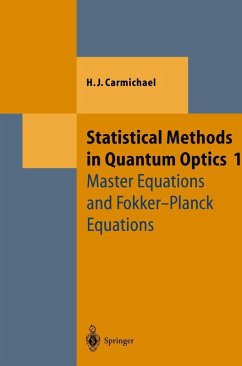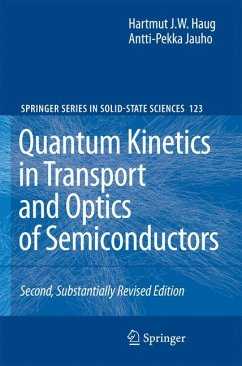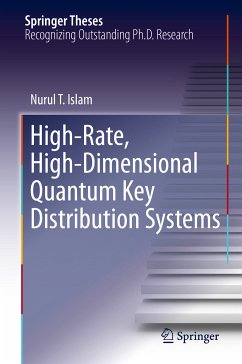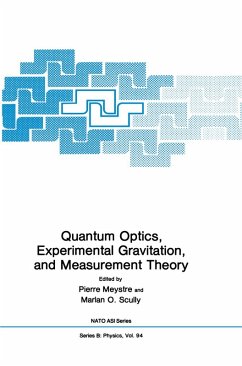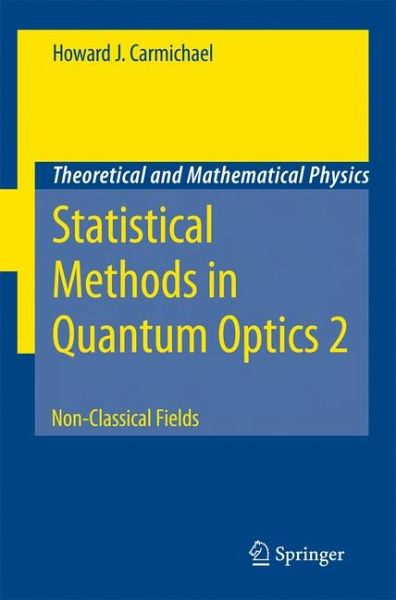
Statistical Methods in Quantum Optics 2 (eBook, PDF)
Non-Classical Fields
Versandkostenfrei!
Sofort per Download lieferbar
72,95 €
inkl. MwSt.
Weitere Ausgaben:

PAYBACK Punkte
36 °P sammeln!
"Statistical Methods in Quantum Optics 2 - Nonclassical Fields" continues the development of the methods used in quantum optics to treat open quantum systems and their fluctuations. The book presents its material at a level suitable for beginning researchers or students in an advanced course in quantum optics, or a course in quantum mechanics or statistical physics that deals with open quantum systems. The text is complemented by exercises and interspersed notes that point the reader to side issues or a deeper exploration of the material presented. Carmichael's Statistical Methods in Quantum O...
"Statistical Methods in Quantum Optics 2 - Nonclassical Fields" continues the development of the methods used in quantum optics to treat open quantum systems and their fluctuations. The book presents its material at a level suitable for beginning researchers or students in an advanced course in quantum optics, or a course in quantum mechanics or statistical physics that deals with open quantum systems. The text is complemented by exercises and interspersed notes that point the reader to side issues or a deeper exploration of the material presented. Carmichael's Statistical Methods in Quantum Optics 1 - Matter Equations and Fokker-Planck Equations was published in 1998.
Dieser Download kann aus rechtlichen Gründen nur mit Rechnungsadresse in A, B, BG, CY, CZ, D, DK, EW, E, FIN, F, GR, HR, H, IRL, I, LT, L, LR, M, NL, PL, P, R, S, SLO, SK ausgeliefert werden.




